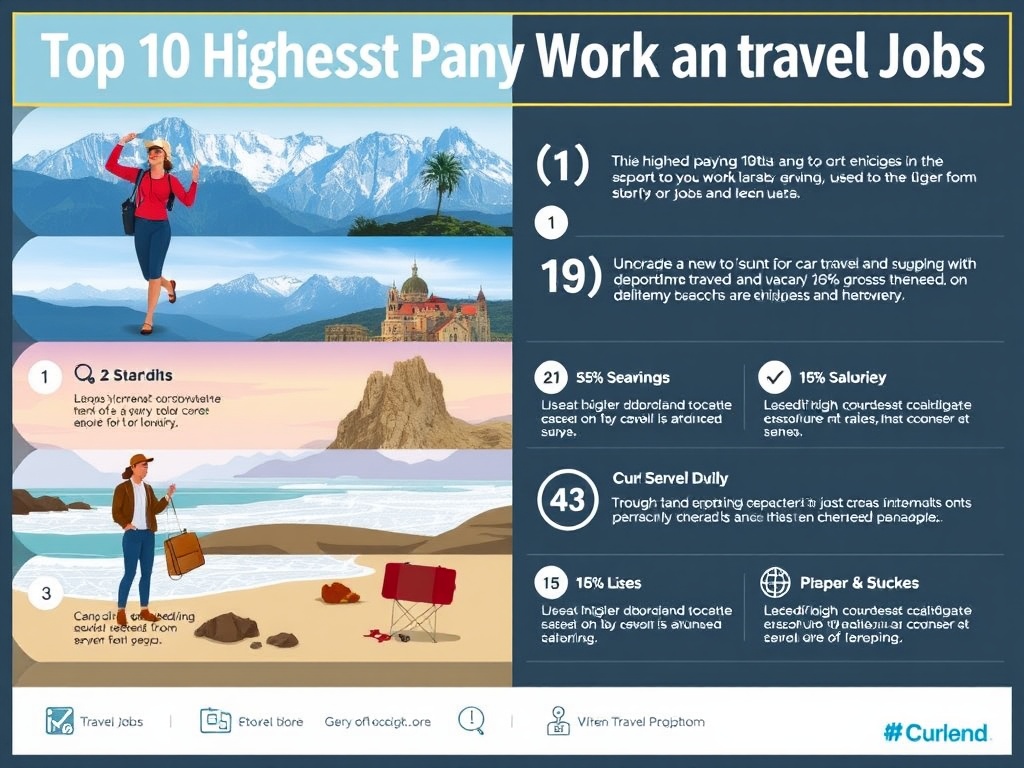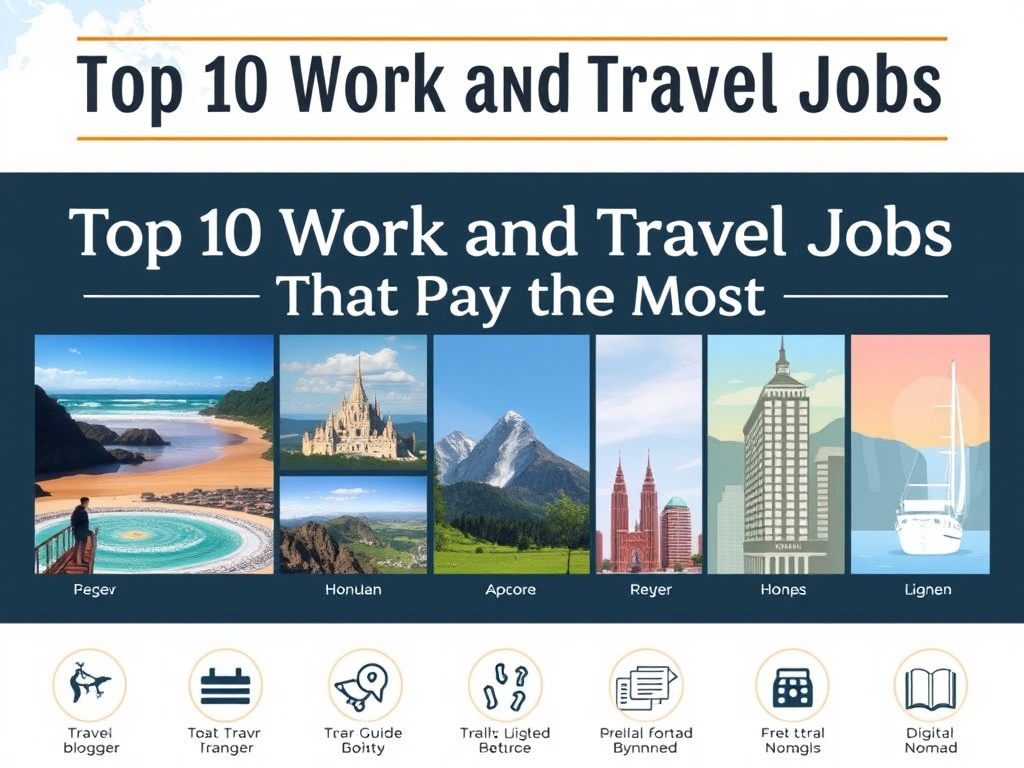Crafting a Standout Resume: Your First Step to Global Opportunities

Understanding the Importance of Your Resume
Your resume is often the first impression a potential employer will have of you, especially in a global job market where competition is fierce. A well-crafted resume not only highlights your skills and experiences but also showcases your ability to adapt to different cultures and environments. In this interconnected world, your resume can be your ticket to exciting opportunities abroad.
Key Elements of a Compelling Resume
To stand out in the pile of applications, your resume should be tailored to the job you’re applying for. Here are the key elements that can elevate your resume:
- Contact Information: Always ensure your contact details are current and professional.
- Objective Statement: Write a concise statement that reflects your career goals and why you’re excited about the role.
- Work Experience: List relevant positions, focusing on achievements and responsibilities that relate to the job.
- Education: Include your degree(s), institution(s), and any relevant certifications.
- Skills: Highlight both technical and soft skills that are pertinent to the job.
- International Experience: If applicable, mention any cross-cultural experiences or language proficiencies.
Formatting Your Resume for Global Appeal
How you present your information can be just as important as what you present. A clean, professional format ensures that your resume is easy to read. Consider the following tips:
| Tip | Description |
|---|---|
| Use Clear Headings | Help your reader navigate your resume quickly. |
| Limit Length | Keep it concise, ideally one page for entry-level positions, two pages for experienced candidates. |
| Consistent Font and Size | Choose professional fonts and maintain uniformity in size. |
| Bullet Points | Utilize bullet points for clarity and to make your achievements stand out. |
Mastering the Art of Networking: Building Connections that Cross Borders

In today’s interconnected world, the ability to network effectively can open doors to remarkable opportunities. Building a strong network is not just about exchanging business cards; it’s about cultivating genuine relationships that transcend geographical barriers. Whether you’re seeking a job abroad or aiming to collaborate on international projects, mastering the art of networking is essential.
Embracing Cultural Nuances for Effective Networking
Navigating the complexities of international networking requires an understanding of cultural differences. Each country has its own customs and communication styles, which can significantly impact how connections are formed and maintained. For instance, while some cultures prioritize direct communication, others may value a more diplomatic approach. Being aware of these subtleties not only demonstrates respect but also enhances your ability to forge meaningful relationships across borders. Adapting to different networking environments can greatly improve your chances of success.
The Power of Genuine Engagement
Networking is most effective when approached with authenticity. People are more likely to engage with you if they sense sincerity in your interactions. This means actively listening and showing interest in others’ stories. Attend global events, workshops, or seminars in your field, and make it a point to follow up with the individuals you meet. A simple message expressing appreciation for their insights can leave a lasting impression. Additionally, leveraging platforms such as LinkedIn can significantly broaden your reach and allow you to connect with professionals from diverse backgrounds. Consistency in your follow-ups and interactions can transform a fleeting encounter into a lasting professional relationship.
Building a Diverse Network
Having a diverse network can provide invaluable insights and opportunities. It enables you to tap into a variety of perspectives and experiences, which can enrich your professional journey. Seek out connections from different industries, backgrounds, and countries. This not only enhances your understanding of global trends but also positions you as a versatile candidate in the job market. As you navigate your career, remember that every connection, regardless of how small it may seem, has the potential to lead to significant opportunities in the future. Cultivating these relationships with care and intention will undoubtedly aid you in your work and travel endeavors.
Ace Your Interview: Strategies to Shine in Any Cultural Context
Understanding Interview Dynamics Across Cultures
When it comes to interviews, cultural context plays a crucial role in how you present yourself and interpret the responses of others. Different cultures have unique expectations regarding communication styles, body language, and even the formality of the interaction. For instance, in some Asian cultures, reserved behavior can be seen as a sign of respect, while in Western cultures, being outspoken may be more appreciated. Recognizing these differences can be your first step toward making a positive impression.
Moreover, it is essential to research the company’s cultural values and the region’s business etiquette before stepping into the interview room. This preparation can help you tailor your responses and demeanor, showcasing your ability to adapt and fit into their environment. Additionally, being aware of common interview practices, such as the significance of eye contact in Western settings versus the more subtle approach in some Eastern cultures, can enhance your confidence.
Crafting Responses that Resonate
During interviews, the questions may vary widely based on regional practices, but the core idea remains the same: you need to articulate your experiences and skills effectively. Begin by framing your past experiences in a way that highlights your adaptability and cultural sensitivity. Use the STAR method (Situation, Task, Action, Result) to provide structured and impactful answers. This approach not only clarifies your thought process but also demonstrates your problem-solving abilities in a global context.
It’s also beneficial to incorporate examples that reflect your understanding of the local culture and its impact on your professional journey. For instance, if you have worked in a multicultural team, discuss how you navigated different communication styles and contributed to a collaborative environment. Such examples will resonate well with interviewers who value diversity and inclusion.
Building Authentic Connections
Lastly, the ability to engage authentically with your interviewers can set you apart from other candidates. This means not just answering questions but also actively listening and responding thoughtfully. Demonstrating genuine interest in the interviewers’ viewpoints or the company’s mission can create a rapport that makes a lasting impression. Ask insightful questions that reflect your research and enthusiasm for the role, as this shows your deep commitment to understanding the organization and its culture.
In conclusion, while the interview process can feel daunting, especially in a foreign context, embracing cultural nuances and preparing thoroughly can significantly enhance your performance. By understanding the dynamics of cross-cultural interviews, crafting resonant responses, and building authentic connections, you will not only shine in your interviews but also lay the groundwork for a successful international career.
Navigating Work Visas: Your Essential Guide to Legal Employment Abroad
Understanding Work Visas: The Gateway to Global Employment
For many aspiring professionals, navigating the complex world of work visas is a crucial step toward achieving their dreams of working abroad. A work visa not only permits you to gain employment in a foreign country but also ensures that you comply with local laws and regulations. The process can seem daunting, with various types of visas and requirements that differ from one country to another. However, having a clear understanding of the specific visa options available to you can simplify your journey to international employment.
When considering a work visa, it’s essential to identify the type that best suits your circumstances. For instance, some countries offer work permits for specific professions, while others may provide visas based on the duration of your employment. Researching the specific requirements, such as sponsorship from a local employer or proof of qualifications, will equip you with the necessary information to move forward.
Key Steps to Securing Your Work Visa
The journey to obtaining a work visa usually involves several steps, and being organized can make the process much smoother. First, start by researching the visa requirements for the country where you wish to work. This includes understanding the eligibility criteria, documentation needed, and application processes. Preparing your application meticulously is crucial, as incomplete or incorrect submissions can lead to delays or denials.
Next, it’s important to secure a job offer from an employer in the destination country, as many work visas require sponsorship. This is where your well-crafted resume and networking skills come into play. Once you have a job offer, your employer may need to provide additional documentation to support your visa application. After submitting your application, stay proactive by tracking its progress and being ready to provide any further information requested by immigration authorities.
Staying Informed: Changes in Visa Regulations
Immigration policies and work visa regulations are subject to change, influenced by factors such as political climates and economic conditions. Therefore, it’s imperative to stay informed about any alterations that might affect your visa status or application process. Joining online forums, following government immigration updates, and connecting with expatriate communities can provide valuable insights and keep you well-informed.
In summary, navigating work visas is a critical component of your journey to working abroad. By understanding the types of visas available, taking systematic steps to secure your visa, and staying updated on regulations, you can overcome the challenges associated with legal employment in a foreign country. Your ability to adapt to these processes will not only enhance your international work experience but also reinforce your commitment to thriving in a global job market.
Cultural Adaptation: Thriving in Diverse Work Environments
In an increasingly globalized world, the ability to adapt to diverse work environments is essential for success. Whether you are embarking on a new career abroad or collaborating with colleagues from various backgrounds, cultural adaptation is more than just a skill; it’s a critical component of professional growth. Embracing different perspectives not only enriches your work experience but also enhances your capacity to contribute meaningfully to your organization. Understanding cultural nuances can transform potential challenges into opportunities for collaboration and innovation.
Navigating Cultural Differences
Every workplace has its own unique culture shaped by the values, beliefs, and practices of its members. Recognizing and respecting these differences can significantly influence your ability to work effectively within a team. For instance, while some cultures may appreciate straightforward communication, others might prioritize indirect expressions to maintain harmony. Being observant and adaptable to these dynamics can foster a more cohesive working environment.
Moreover, it is vital to educate yourself about your colleagues’ backgrounds. Engaging in conversations and asking questions about their cultural practices can not only demonstrate your respect but also build trust. This proactive approach can lead to a deeper understanding of how to navigate interpersonal relationships in a multicultural workplace.
Building a Culture of Inclusion
Thriving in a diverse work environment also involves contributing to a culture of inclusion. As you adapt to your new surroundings, think about how you can support others in their adaptation journey as well. Creating an inclusive atmosphere requires active participation, where every team member feels valued and heard. Consider initiating team-building activities that celebrate cultural diversity, or propose mentorship programs that pair experienced colleagues with newcomers from different backgrounds.
Furthermore, harnessing the power of diversity can lead to innovation and improved problem-solving. Teams composed of individuals with varied experiences are often more creative and effective at addressing challenges. Thus, embracing and advocating for diversity within your workplace can yield significant benefits not only for your team but for the organization as a whole. In light of this, it is essential to recognize that cultural adaptation is a two-way street. As you seek to understand and integrate into your new work culture, be open to sharing your own cultural insights, creating a rich tapestry of collaboration.
Remote Work Opportunities: Finding Freedom in a Global Marketplace
Embracing the Digital Nomad Lifestyle
In today’s interconnected world, remote work opportunities are revolutionizing the traditional employment landscape. The concept of working from anywhere has gained immense traction, allowing individuals to explore diverse cultures while maintaining productivity. This newfound flexibility not only enhances work-life balance but also opens the door to a plethora of global job prospects. As the demand for remote talent grows, so does the potential for professionals to create a lifestyle that blends work and travel seamlessly.
Identifying Your Niche in a Global Market
To effectively navigate the realm of remote work, it’s crucial to identify your niche and the skills that set you apart. Industries such as technology, marketing, and customer service are particularly ripe for remote roles. By honing in on your strengths and aligning them with market demands, you increase your chances of landing a rewarding position. Importantly, adapting your resume to showcase relevant experiences and skills tailored for remote work can significantly enhance your visibility to potential employers.
Building a Global Network
Equally important is the cultivation of a robust professional network. Engaging with like-minded individuals through online platforms can lead to opportunities that might otherwise remain hidden. Participating in remote work forums, virtual conferences, and social media groups allows you to connect with industry leaders and potential collaborators from around the world. This proactive approach not only broadens your horizons but also enriches your understanding of different work cultures, essential for anyone aspiring to thrive in a global marketplace.
Post-Interview Success: Following Up and Capitalizing on Opportunities
After navigating the often-intimidating landscape of job interviews, the real work begins once you leave the interview room. While it may be tempting to simply wait and see what happens next, taking proactive steps in the post-interview phase can significantly enhance your chances of securing the role. This phase is not just about waiting; it’s about effectively leveraging the momentum you’ve built during the interview process.
Why a Thoughtful Follow-Up Matters
A well-crafted follow-up can set you apart from other candidates. It reflects your enthusiasm for the position and reinforces your professionalism. Moreover, a follow-up note offers a unique opportunity to address any points you may have felt were left unspoken during the interview. By reiterating your interest and highlighting your qualifications, you can further solidify your case as the ideal candidate.
Crafting Your Follow-Up Message
When composing your follow-up email, it’s essential to strike the right balance between professionalism and warmth. Here are key components to include in your message:
- Gratitude: Start by thanking the interviewer for their time and the opportunity to learn about the role and the organization.
- Personal Touch: Reference a specific moment from the interview that resonated with you. This shows that you were engaged and are genuinely interested in the position.
- Reinforcement: Briefly reiterate your skills and experiences that align with the job requirements, emphasizing how you can contribute to the team.
- Availability: Express your eagerness to discuss the opportunity further and mention your availability for any next steps.
Leveraging Opportunities Beyond the Interview
Post-interview is also the perfect time to explore additional avenues for engagement. Consider the following strategies:
- Networking: If you connected with other team members during your interview, consider reaching out to them as well. A simple thank-you note can help you establish a rapport and keep you on their radar.
- Social Media Engagement: Follow the company on platforms like LinkedIn and Twitter. Engaging with their content can show your ongoing interest and keep you informed about company news and developments.
- Continuous Learning: Stay updated on industry trends and skills that are relevant to the role. This not only enriches your knowledge but also prepares you for potential future discussions with the employer.
In conclusion, the post-interview phase is a critical time to demonstrate your commitment and eagerness for the position. By taking the initiative to follow up thoughtfully and explore additional connections, you can capitalize on the opportunities that lie ahead. Embrace these strategies to enhance your professional journey, and remember that your proactive approach can make all the difference in securing your dream job.



